Agriculture & Environment
CAES Stakeholder Engagement on Challenges Affecting the Seed Value Chain in the Horticulture Industry in Uganda
Published
4 years agoon
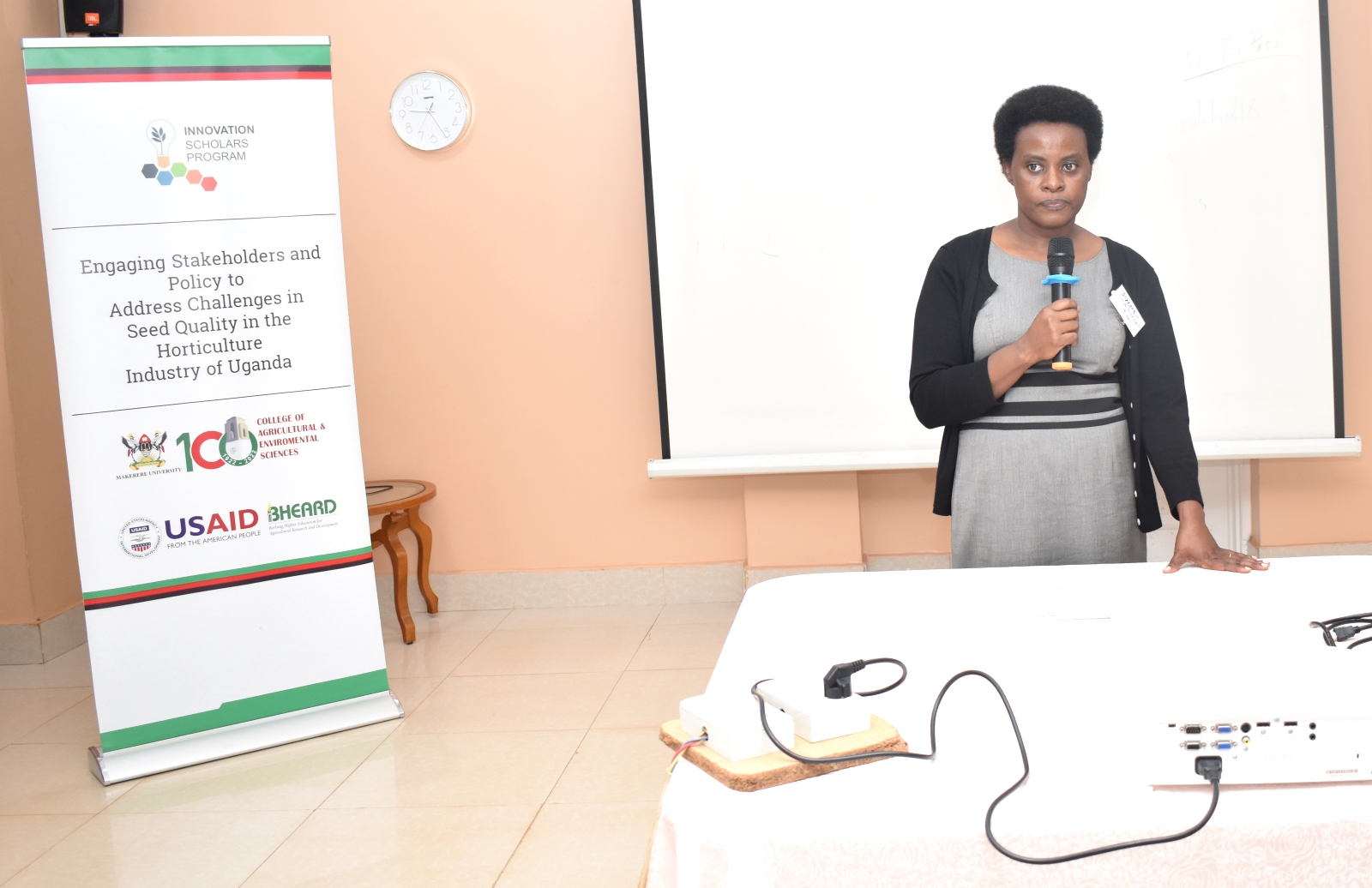
68% of Uganda’s farming households are engaged in subsistence rain-fed agriculture that relies largely on home-saved seed of low quality resulting into low production. Farmers’ reliance on home-saved seed is caused by insufficient availability of affordable high quality seed and lack of trust in the certified seed available in the market. Certified seed contributes only about 15% of seed requirement (mainly maize, some legumes). The remaining 85% is from the informal sector. Due to the inability of seed companies to supply required quantities of certified seed and the limited capacity in the regulatory system, an estimated 30-40% of seed traded in the market is counterfeit.
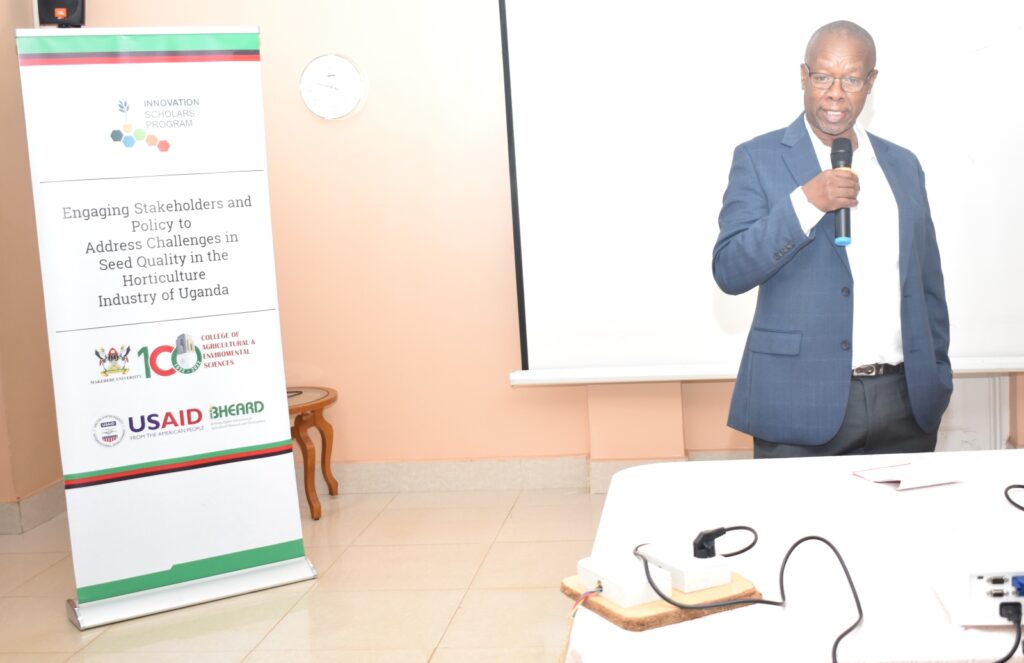
In a bid to increase access to quality seed in the Horticulture Industry in Uganda, the College of Agricultural and Environmental Sciences (CAES), Makerere University through the Innovation Scholars Program (ISP) is engaging different stakeholders in the country to address the challenges in seed quality. Through a project titled, “Engaging Stakeholders and Policy to Address Challenges in Seed Quality in the Horticulture Industry of Uganda: A Case of Tomato and Pepper”, researchers led by Dr. Jeninah Karungi-Tumutegyereize, an Associate Professor in the Department of Agricultural Production at CAES, Makerere University seek to enhance the quantity and quality of horticultural crops produce, and to strategically position CAES in agricultural development in the country. Other members on the project are; Prof. Samuel Kyamanywa, and Dr. Mildred Ochwo Ssemakula from the Department of Agricultural Production, Makerere University; Dr. Gabriel Ddamulira (Head, Horticulture Programme, National Crops Resources Research Institute (NaCRRI); Mr. Moses Erongu from the Department of Crop Inspection and Certification at the Ministry of Agriculture, Animal Industry and Fisheries; and Mr. Daniel Kituzi, a farmer and entrepreneur. The project is supported by USAID and Michigan State University’s Borlaug Higher Education for Agricultural Research and Development (BHEARD).
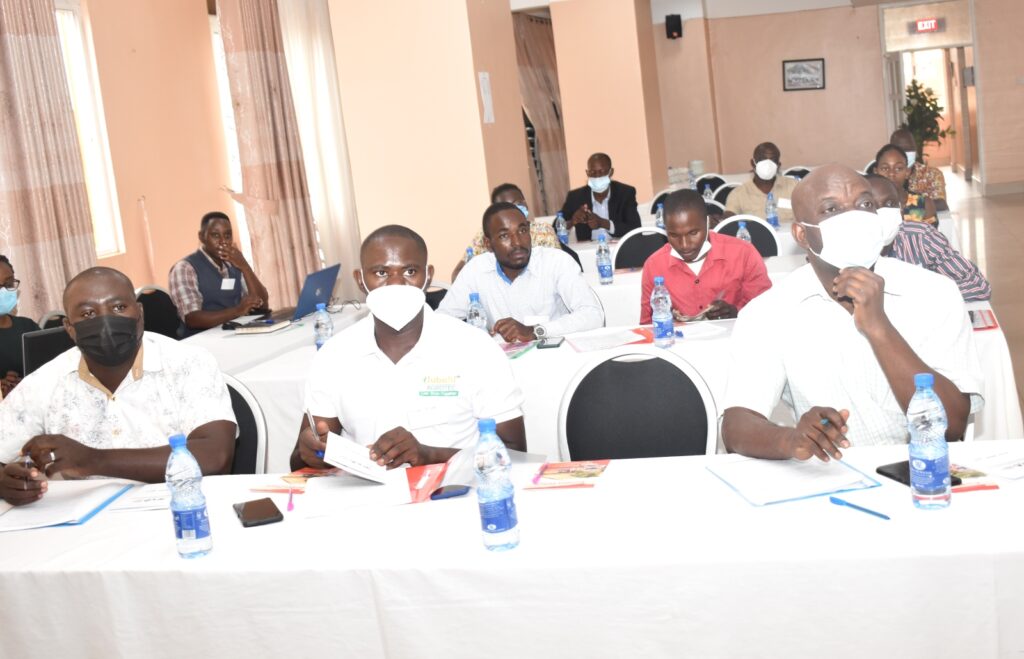
Stakeholder engagement
On 13th July 2022, the project team held a stakeholders’ workshop to deliberate on the challenges in the seed value chain in the horticulture industry in Uganda and to explore avenues for supporting the operationalization of the National Seed Policy. The meeting held at Eureka Place Hotel in Ntinda, Kampala was attended by staff from the Department of Agricultural Production, CAES; representatives from MAAIF, NARO, and seed companies; as well as farmers and exporters.
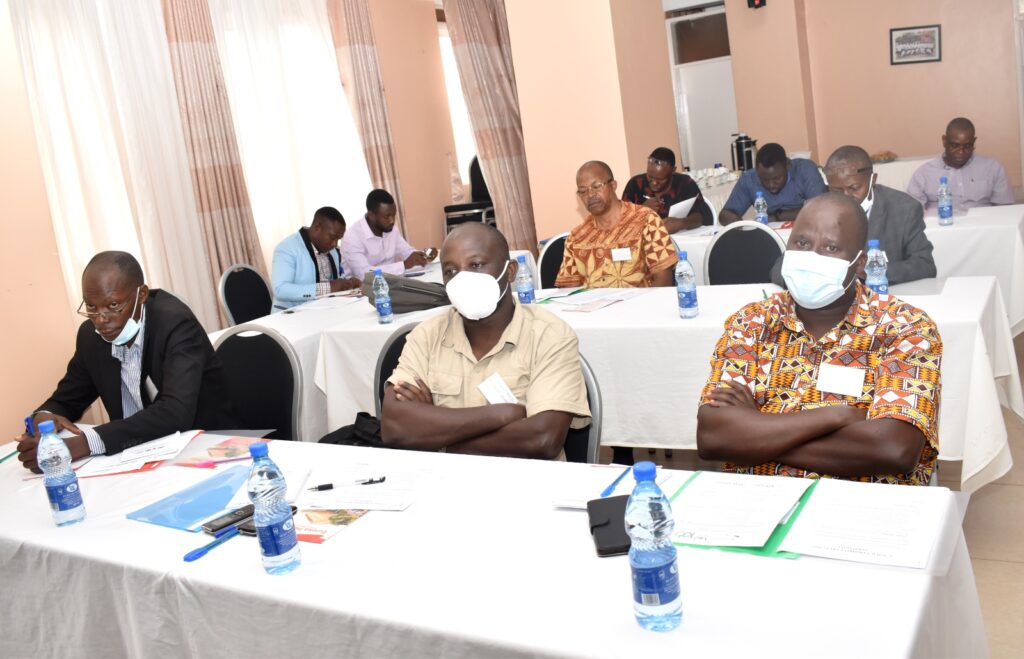
Challenges affecting the seed value chain in the horticulture industry in Uganda
During the stakeholder engagement, Dr. Karungi shared an overview of their project pointing out key factors undermining access to quality seed in Uganda’s Horticulture Industry including; limited funding; lack of qualified manpower especially breeders, seed technologists and agronomists to develop, maintain private varieties and parental germplasm; and a weak policy framework to support quality control. “Uganda has made strides in developing an institutional policy and regulatory framework for the seed subsector. However, implementation and enforcement remain a challenge due to inadequate human and financial resources leading to limited enforcement of seed quality standards. Institutional and policy weaknesses limit the development of a competitive, vibrant and pluralistic seed sector in Uganda,” she noted.
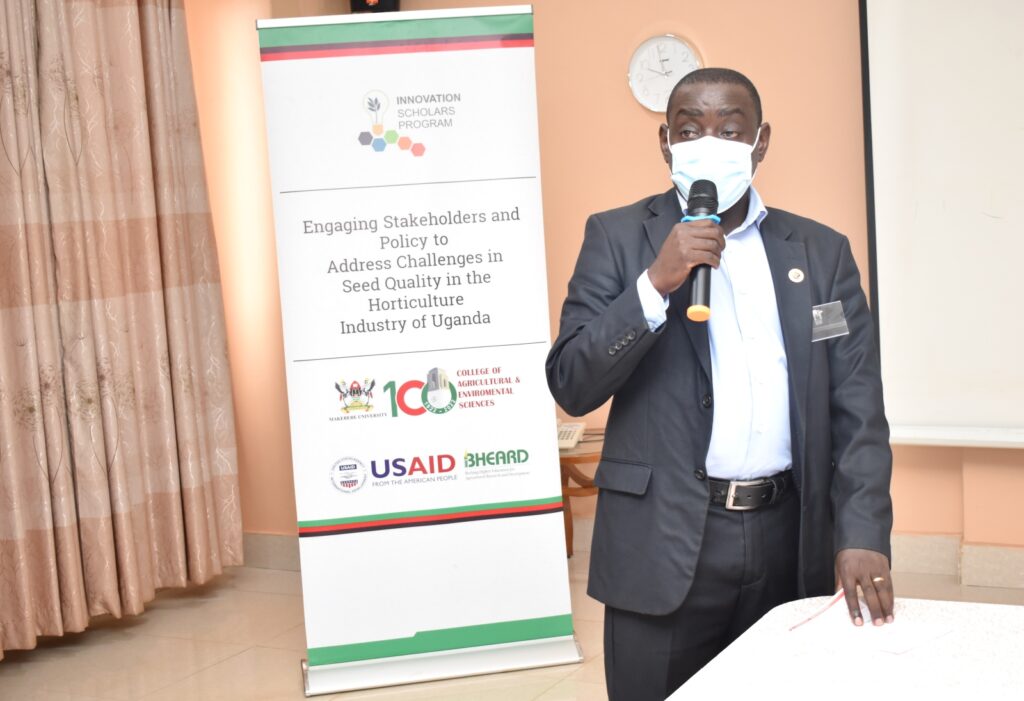
Commenting on the Parish Development Model which emphasizes increase in agricultural production, Dr. Fredrick Bagamba from the Innovation Scholars Program (ISP) at CAES underscored the significance of improving access to quality seed, noting that ISP was supporting the process by ensuring end users are involved right from problem identification.
Interventions
Addressing participants, the Head of the Horticulture Programme at the National Crops Resources Research Institute (NaCRRI)), Dr. Gabriel Ddamulira noted that as part of the interventions to address the challenge of lack of access to quality seed, the National Agricultural Research Organization (NARO) in 2021 released certified vegetable varieties from Uganda. “In crop production, the most fundamental factor is seed. However, access to quality seed is still low. Increasing access to quality seed requires enabling policies, research, private sector engagement & regulation,” he explained.
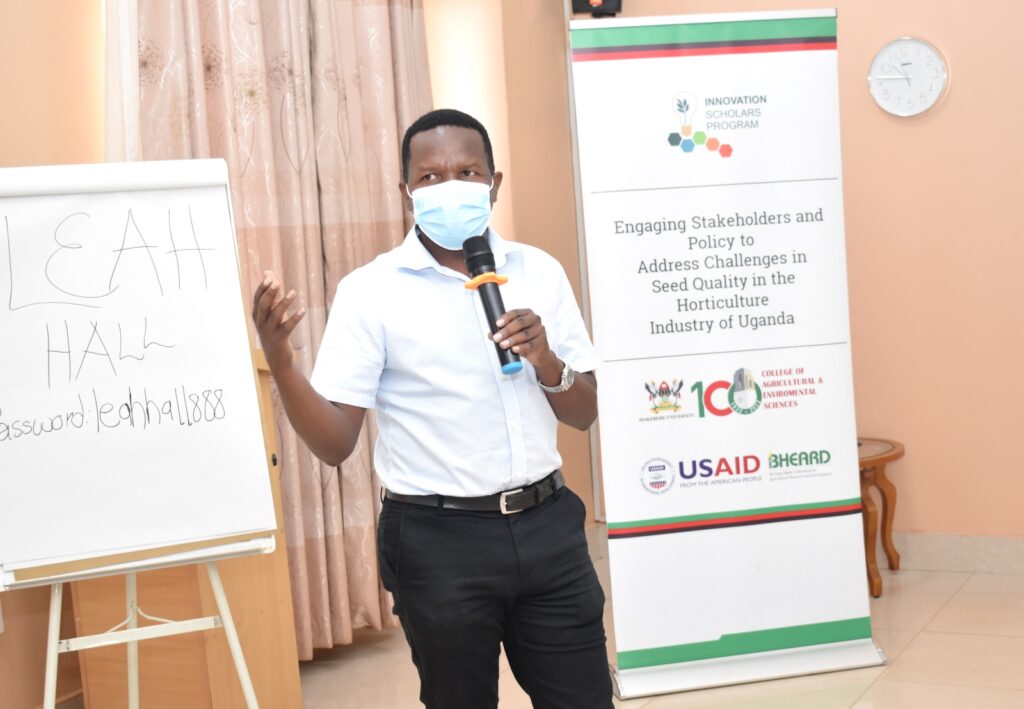
Discussing the legal aspects of seed entrepreneurship and distribution, Mr. Moses Erongu from the Department of Crop Inspection and Certification at the Ministry of Agriculture, Animal Industry and Fisheries (MAAIF), cautioned farmers against buying seed of unknown quality. He urged seed dealers to report issues of counterfeit seed to agricultural extension officers, police or MAAIF, and to always consult with extension service providers before buying seed. To address the challenge of seed quality, Mr. Erongu said MAAIF was renovating and expanding the seed testing laboratory at Kawanda to provide better services. He further noted that MAAIF was developing a digital tracking system to monitor the quality of seed.
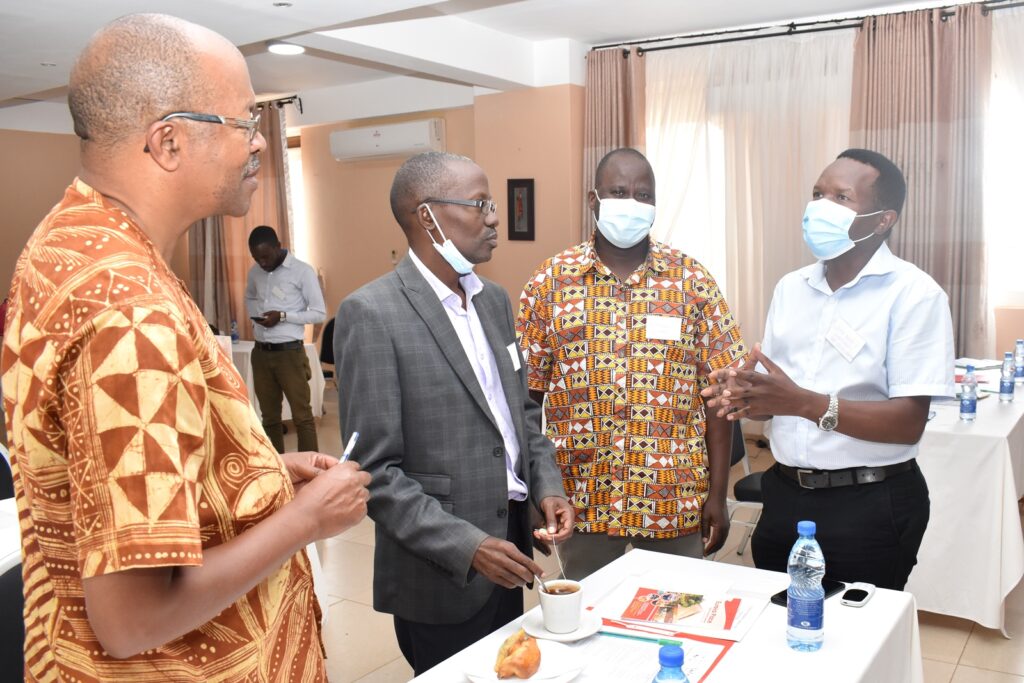
Brainstorming on strategies to support the operationalisation the National Seed Policy
The overall goal of the National Seed Policy is to guide, promote, develop and regulate the seed sub-sector in order to ensure availability, accessibility and affordability of safe and high quality seed to all stakeholders for increased food and nutrition security, household income, wealth creation and higher export earnings. The policy sets out to; i) strengthen research and development for the seed sector; ii) strengthen capacity of the key players along the seed value chain to achieve an effective and efficient seed sector; iii) strengthen the seed quality control system along the entire value chain; and to enhance knowledge and information management for the seed sector. Policy priority areas include; i) generating new commercial and food and nutrition security varieties; ii) sustainable utilisation and protection of Uganda’s national plant genetic resources; iii) multiplication of high quality seed under the formal seed system; iv) enhancement of the production of quality seed within the informal system; v) strengthening seed distribution and marketing to enhance commercialization of quality seed; vi) enhancement of national competitiveness in regional and international seed trade to contribute to economic growth; vii) quality control along the formal seed value chain; viii) quality control for Quality Declared Seed; ix) development of human resource for the seed sub-sector development; and x) and establishment of a Seed Sector Integrated Information Management System.
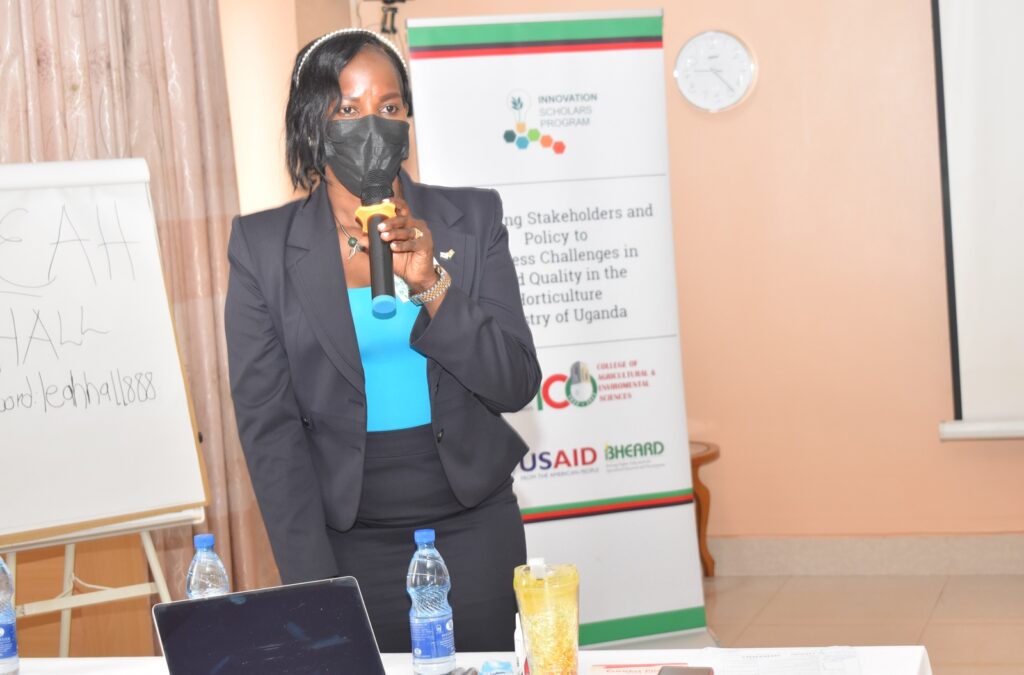
Suggestions by participants
Braining on measures to support the operationalization of the National Seed Policy, participants called for the development of a national horticulture policy and improved investment into the horticulture seed industry – availing resources to support the breeding of seed varieties. They also called for skilling of farmers in good agronomy practices, strengthened regulation of the seed industry, more research on the sector, identification and development of seed varieties for commercially viable crops, financial subsides to the seed companies, insurance to manage the challenge of seed forecast, protection of local seed industries from competition; strong penalty for companies dealing in counterfeit seed, enhancement of capacity of extension workers and inspectors, and empowerment of institutions of higher learning to train manpower to support the seed system in the country.
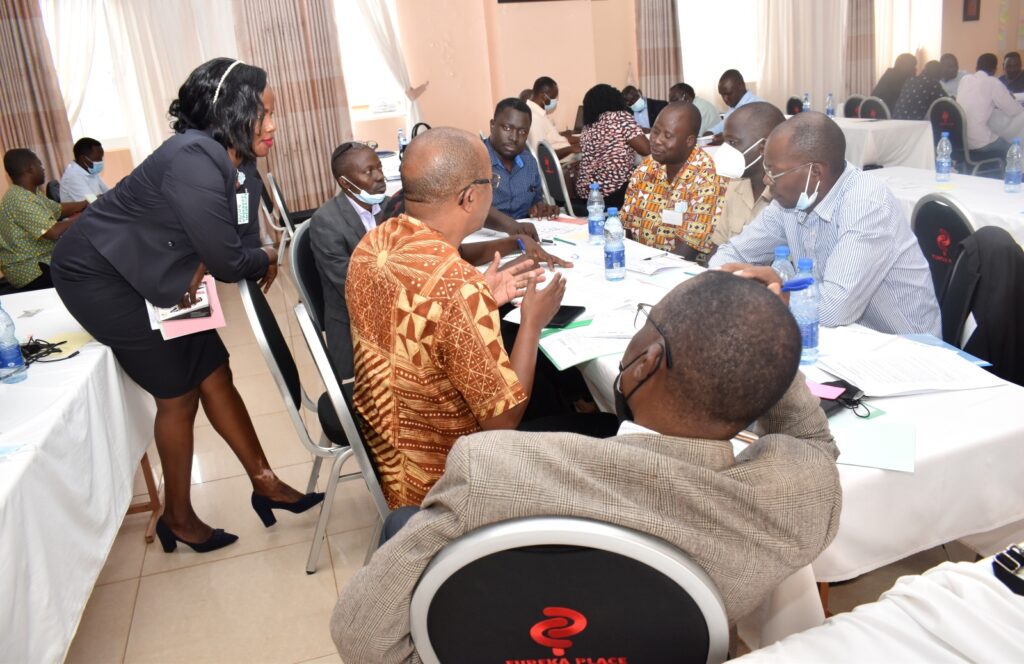
The workshop was moderated by Ms. Harriet Adong, Director Communication, Learning and Knowledge Management at RAN, also Communication Officer at Makerere University Research and Innovations Fund (Mak-RIF).
About the CAES Innovation Scholars Program
Makerere University College of Agricultural and Environmental Sciences (CAES) and Michigan State University’s Borlaug Higher Education for Agriculture Research and Development (BHEARD) Program with the support of the MSU’s Global Centre for Food Systems Innovation (GCFSI) are working together to advance CAES toward its strategic vision “to be a leading institution of academic excellence and innovations in Africa.” The CAES Innovation Scholars Program (CAESISP), offers an eighteen-month opportunity during which CAES academic personnel can work as interdisciplinary teams to solve food system problems that are relevant to the food systems in Africa, while at the same time offering support to the entire CAES academic team in the areas of design thinking, teaching and learning, community outreach, and communicating science.
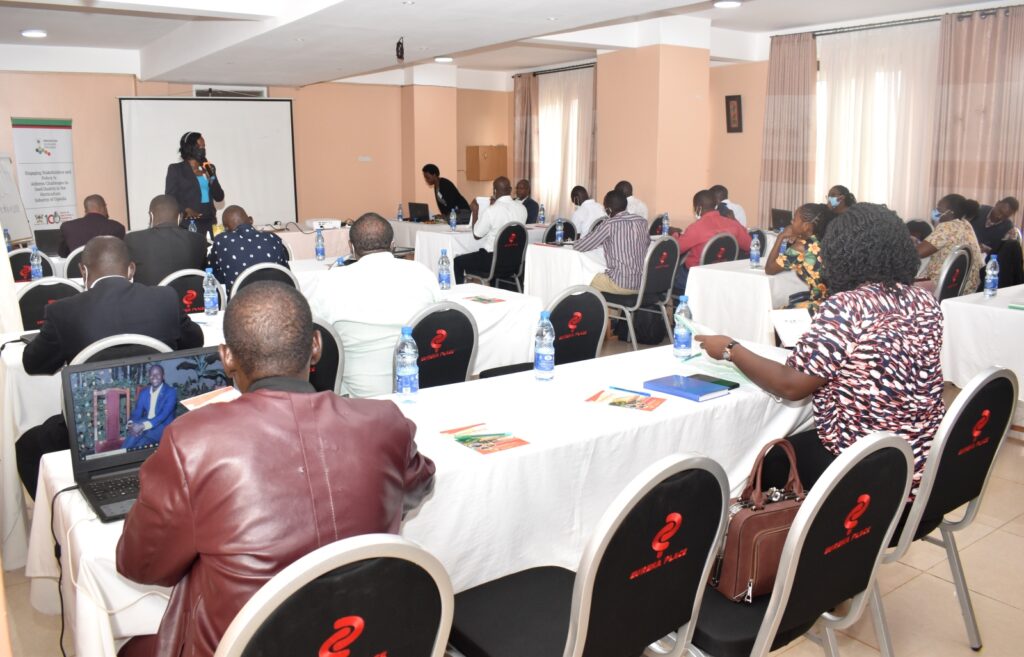
The CAESISP serves as a catalyst to support food system innovations that improve food security, and develop the current and next generation of entrepreneurial scientists at Makerere University and in the region. The program is modelled after a successful, field-tested faculty development program implemented at the Lilongwe University of Agriculture and Natural Resources (LUANAR) and the Malawi University of Science and Technology (MUST) —yet tailored for innovation and contextual challenges at Makerere University. The core values of the CAESISP include: participatory, asset-based, learner-centered, contextualized, and evaluative.
Access the National Seed Policy here: https://www.agriculture.go.ug/wp-content/uploads/2019/05/Ministry-of-Agriculture-Animal-Industry-and-Fisheries-National-Seed-Policy.pdf
You may like
-


Olivia Nakisita and the Quiet Urgency of Adolescent Refugee Health
-


Mastercard Foundation Scholars embrace and honour their rich cultural diversity
-
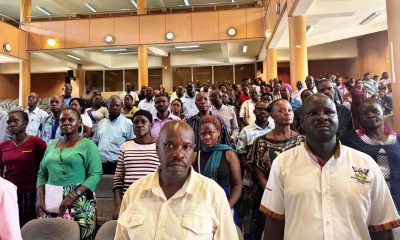

Support Staff Trained to Promote Safety of Students and Stakeholders
-


Makerere Launches Scholarly Guide, Calls for Increased Research, Publication and Innovation in Africa
-
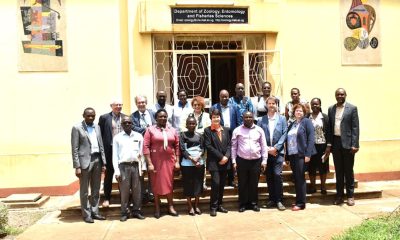

BOKU University Charts New Collaboration Strategies with Mak’s Department of Zoology, Entomology & Fisheries Sciences
-


When Birth Becomes the Most Dangerous Moment, Wanduru & the Work of Making Labour Safer
Agriculture & Environment
From Adversity to Excellence: The Inspiring Journey of Makerere’s Best Science Student, Esther Ziribaggwa
Published
2 weeks agoon
February 6, 2026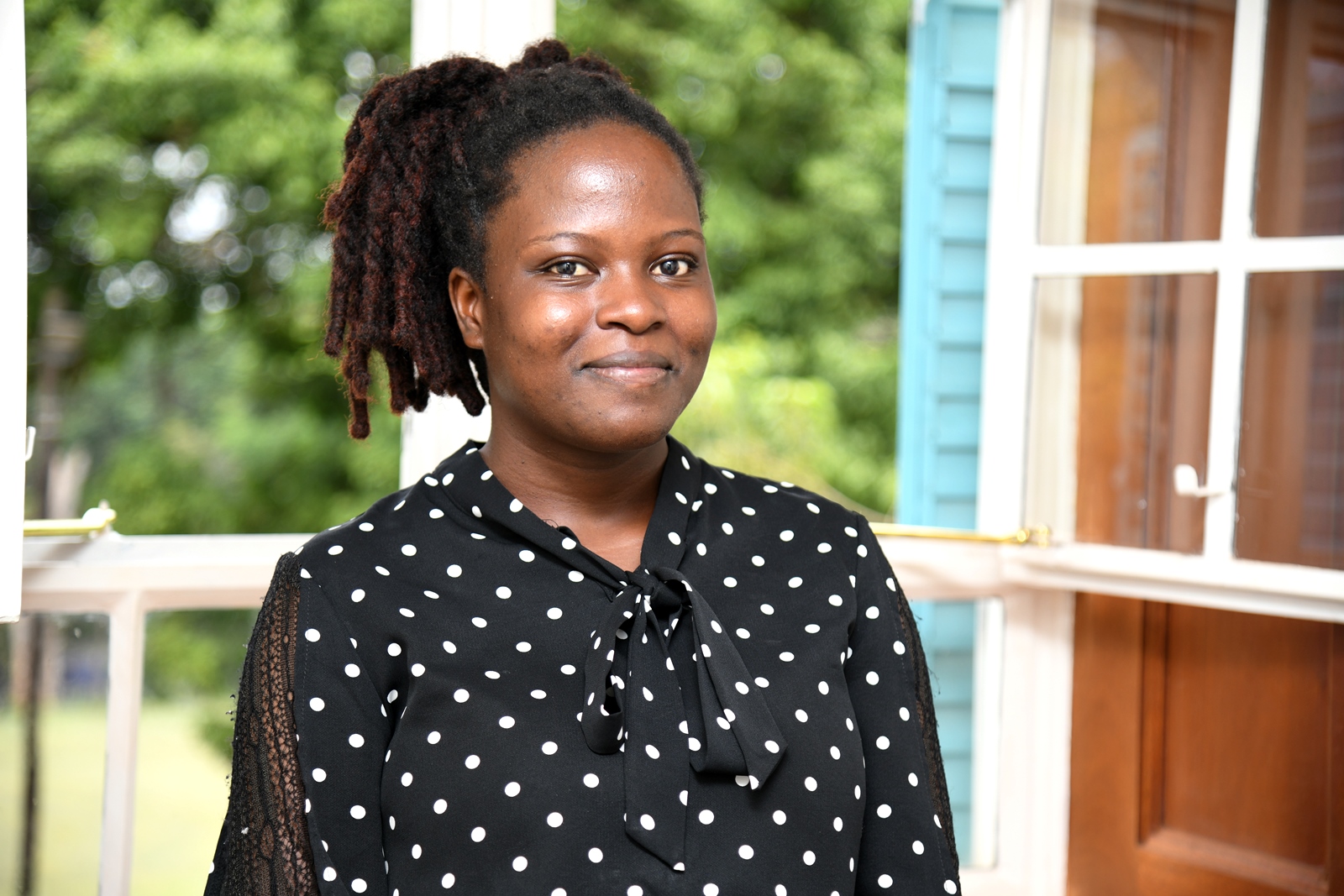
Growing up in Nkonge Village, Kyampisi Sub County in Mukono District, Esther Ziribaggwa learned early the meaning of resilience.
Born to Mr. Musisi Godfrey, a farmer, and Ms. Babirye Resty, a market vendor in Seeta, Mukono District, her journey from humble beginnings to becoming Makerere University’s top-performing student in the Sciences is a testament to her determination, hard work, and unwavering faith. She attained a CGPA of 4.77 in the Bachelor of Agricultural and Rural Innovation, a programme taught at the College of Agricultural and Environmental Sciences (CAES). She will be graduating from Makerere University on 24th February 2026, the first day of the 76th graduation ceremony.
Educational Journey and Navigating the Financial Hurdles to remain in School
Ziribaggwa’s journey to academic excellence has not been smooth. But her parents’ sacrifices laid the foundation for her dreams, even as life presented relentless challenges.
She began her education at Frobel Day and Boarding Primary School and later joined Seeta Boarding Primary School, where she excelled with 9 aggregates in her Primary Leaving Examinations. However, the transition to secondary school presented challenges that tested her resolve.
She joined Mpoma Royal College in Mukono District alongside her sister, who had scored 12 aggregates. Shortly after starting Senior One, their father fell seriously ill, requiring an intestinal surgery, and could not continue to work. With the family unable to pay school fees, both sisters dropped out for a year. It was only through the compassion of the school bursar and the then Head Teacher, Ms. Namazzi Connie, who reduced their fees from 800,000 to 380,000 Uganda Shillings, that Ziribaggwa and her sister were able to return. “The year out of school was a huge setback,” she recalls, “but I focused on catching up. I knew I couldn’t waste this second chance.” Her perseverance paid off. Despite the lost year, she completed her O’ Level with 25 aggregates in eight subjects.
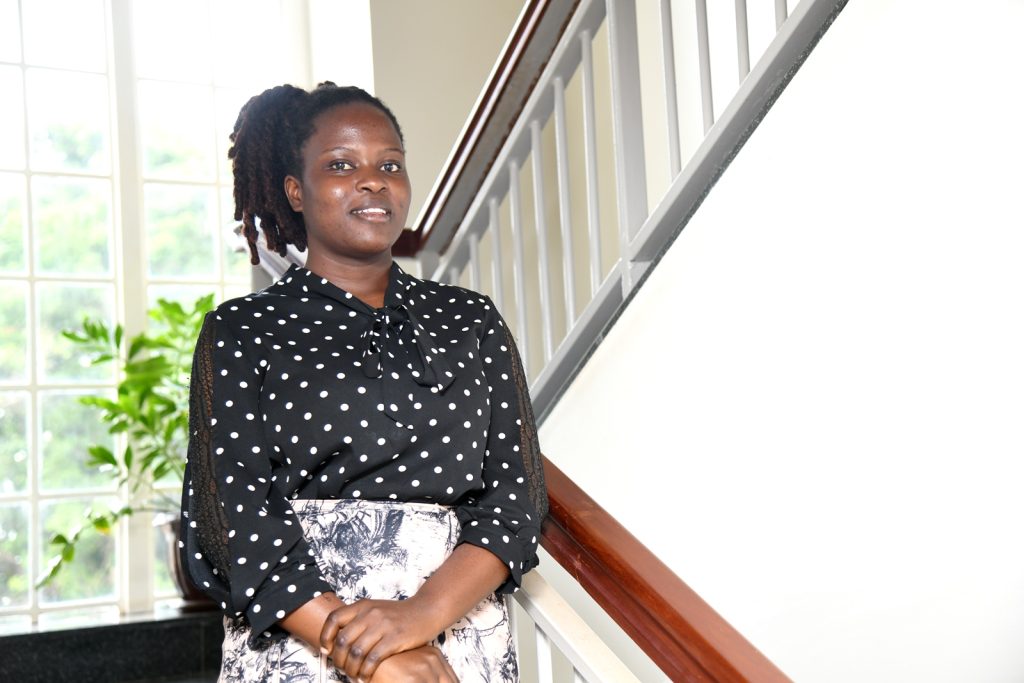
Her A’ Level years were marked by similar challenges. Due to financial constraints, Ziribaggwa attended three different schools. She initially enrolled at Seat of Wisdom Boarding School in Kayunga but was forced to leave when her family could no longer afford the fees. At the time, her father, the family’s sole breadwinner, had undergone a second operation and was unable to work. Her mother, a market vendor, stepped in to support her education and transferred her to Paul Mukasa Day and Boarding Secondary School in Mukono District as a day student. However, the long daily commute was exhausting, leading to a final transfer to Godmark High School in Mukono District where she completed her A’ Level in 2019 with 15 points in Geography, Economics, Agriculture, and Subsidiary Mathematics.
After completing secondary school, Ziribaggwa waited two years before joining university due to financial constraints. Although she had been admitted under the private sponsorship scheme to pursue a Bachelor of Statistics, she was unable to raise the required tuition. Following the outbreak of COVID-19 and the subsequent lockdown, an opportunity arose for her to obtain government sponsorship. At the time, there were no Senior Six leavers, prompting Makerere University to invite applications from candidates who had completed Senior Six within a specified period. The cut-off points across programmes were lowered, enabling her to secure government sponsorship to pursue a Bachelor of Agricultural and Rural Innovation.
Appreciation
She is deeply grateful to the Almighty, her parents, and everyone who supported her educational journey. She is specifically thankful to the Government of Uganda for sponsoring her university education, and to Ms. Namazzi Connie, her O-Level Head Teacher, for subsidizing her school fees. She is also grateful to all her lecturers at CAES and Jesus is King Ministry under the Makerere University Christian Union.
Message of Resilience to Fellow Students
To the students navigating similar challenges, Ziribaggwa shares a message of encouragement. “Never let your situation break you. There’s always going to be challenges, sometimes pushing you to what feels like a point of no return. But those moments should not define your future – they are a test of your resilience. Strive to outgrow them and become a better person, even when the journey feels impossible.”
Career and Aspirations
Ziribaggwa currently works in the extension division of Slow Food Uganda, an agricultural organization based in Mukono District, where her work focuses on women and youth. Although her dream was to become a medical doctor, her love for agriculture has grown over time and does not regret taking on this path. She aspires to become a Senior Agricultural Officer in the country, with the goal of improving farming conditions, particularly in the rural communities. Growing up in a farming community exposed her to many challenges faced by farmers, including unpredictable weather conditions that necessitate irrigation support, and improper use of agrochemical inputs, which pose risks to both soil quality and human health.
Ziribaggwa hopes to pursue further studies in crop and soil science. She draws inspiration from exemplary leaders like Hon. Rebecca Kadaga, former Speaker of the Parliament of Uganda, and First Deputy Prime Minister and Minister for East African Community Affairs. “I have always admired her for being hardworking, resilient, and eloquent,” she says, seeking to emulate these qualities in her own journey.
Agriculture & Environment
Call for Applications: QCF Postdoctoral Research Fellowships
Published
4 weeks agoon
January 20, 2026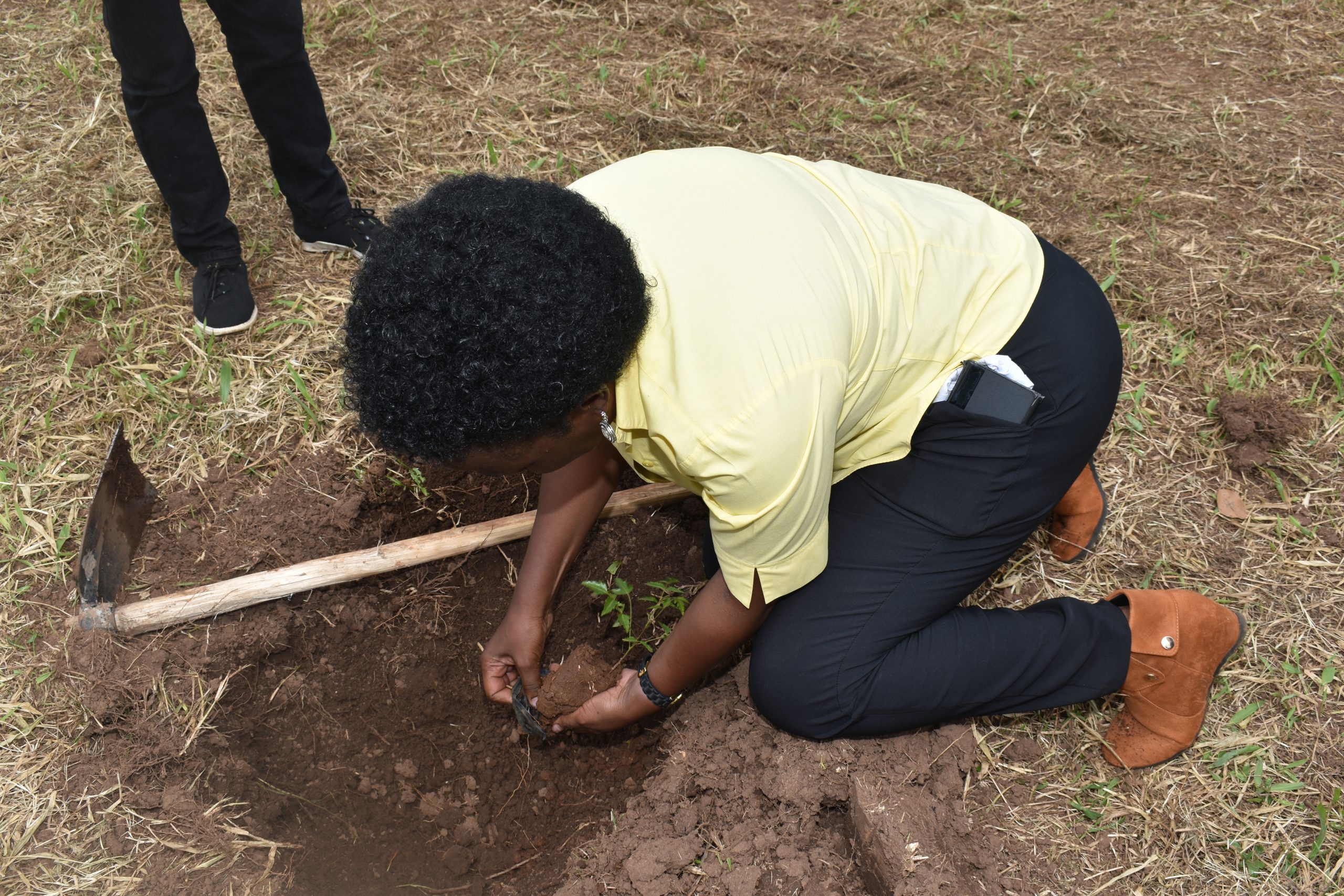
Makerere University’s Department of Geography, Geo-informatics and Climatic Sciences in partnership with Quadrature Climate Foundation and Red Cross Red Crescent Climate Centre are seeking two fellows for Quadrature Climate Foundation (QCF) Fellowship Programme. This is a two-year post-doctoral programme fully funded by QCF, which is an independent charitable foundation working for a greener and fairer future. Applications for the two-year post-doctoral fellowship are invited from individuals with demonstrated interest and expertise in locally led adaptation to climate change research. This initiative is a unique and excellent opportunity to expand the network of interested individuals with researchers and decision-makers, as well as deliver action-oriented research to inform policy and practice. Depending on their interest, each applicant should choose one of the two thematic areas offered under the fellowship program:
- Knowledge co-creation for locally led adaptation to climate change
- Decentralised decision making for effective climate change adaptation and resilience
The Fellow working on the Thematic Area 1: knowledge co-creation for locally adaptation will explore collaborative learning processes (including informal learning) for climate change adaptation among smallholder farmers with focus on Uganda, with linkages to related work in Bangladesh, Mozambique and Nepal. The overall intention is to generate understanding of how decision making processes, across scales, can be linked to local and context specific knowledge systems and process for epistemic just adaptation. The key research questions are:
- What does the process of co-creating knowledge for locally led climate change adaptation look like in a rural smallholder farming setting of a Least Developed Country (LDC)?
- What are the possibilities, promises and pitfalls of knowledge co-creation for locally led adaptation planning?
The research will intentionally contribute to methodological and practice advances in co-creation of knowledge for locally led climate change adaptation.
The research on Thematic Area 2: decentralised decision making for effective adaptation and resilience will undertake scientific interrogation of a climate finance mechanism that has been designed for locally led adaptation and resilience in Uganda. The Fellow will largely focus on testing selected assumptions behind the design of the mechanism. The key questions are:
- How does effective locally led climate change adaptation and resilience building investment decision making look like in practice?
- What works and how does it work? What does not work and why?
Key considerations in the research will include local leadership, inclusion, context specificity, cross-scale, and capability strengthening. The targeted contributions of the fellowship include improved knowledge management for climate resilience planning and decision-making, strengthened evidence-based research-policy-practice dialogues, framework(s) for integrating local and experiential knowledges in resilience building investment decision making processes, among others.
The Fellows will be based, full-time, at Makerere University, Kampala as a core member of the team working on locally led adaptation and resilience. Their work will be conducted under the auspices of the Least Developed Countries Universities Consortium on Climate Change (LUCCC) through which Makerere University is engaged in research and knowledge management collaborations. The Fellowships will focus on Uganda, but with deliberate linkages across LDCs, which might necessitate travels for in-person working meetings.
Roles and responsibilities of the Postdoctoral Research Fellow
The Fellow will be highly motivated to work with a transdisciplinary research team, grow their research expertise, engage with climate change researchers, decision-makers, practitioners and generate different categories of publications. Makerere University will appoint a locally based mentor to the Fellow to provide professional development support. Where needed, the Fellow will participate in teaching and community outreach activities including knowledge sharing in ways that foster collaborative research for adaptation policy and practice.
Requirements:
- A PhD, awarded within the previous three years, in a related discipline (e.g., geography, climate and society, sustainability, adaptation governance, epistemic justice, climate finance).
- Knowledge and experience of locally led adaptation in the agriculture sector.
- Experience in synthesizing and managing datasets and literature.
- Experience in, and knowledgeable of, participatory and collaborative action-oriented research methodologies and tools.
- Demonstrated ability to produce research information products for different audiences.
- Excellent written and verbal communication skills in English
- Demonstrated interest and experience in transdisciplinary collaborations across-scales including with local communities, decision-makers and practitioners in LDCs
- Experience in giving international oral presentations and interest in public communication for wide-ranging categories of audiences
- Data and information visualisation skills will be an added advantage
Application requirements:
Applicants should submit a single PDF with: (i) an application letter not longer than 2 pages that includes indication of theme of interest, a description of research interests, research expertise, and an explanation of how they can work as part of the transdisciplinary research team in line with the fellowship objectives described above; (ii) a CV including a publication list; (iii) copies of academic transcripts and/or certificates; (iv) an example of written work; (v) email addresses of two references who have been directly involved in their PhD research.
Applicants must submit the PDF application document to colocal.caes@mak.ac.ug. Please type “LUCCC PDR Application: COLOCAL-Makerere” as the subject line of the email.
Closing date
Midnight (GMT+3) on 27th February, 2026 or until the position is filled.
Selection process
Eligible and complete applications will be considered followed by communication with short-listed applicants. Makerere University, in consultation with Quadrature Climate Foundation and the Red Cross Red Crescent Climate Centre, will conduct interviews of the short-listed applicants.
If you have not heard from Makerere University within two months of the deadline, please assume your application has been unsuccessful.
Contact details for enquiries about this post-doc fellowship: colocal.caes@mak.ac.ug
Makerere University reserves the right to
- Disqualify ineligible, incomplete and/or inappropriate applications;
- Change the conditions of the award or to make no awards at all
-The QCF Fellowship Programme is a two-year, post-doctoral programme fully funded by Quadrature Climate Foundation (QCF).
-Quadrature Climate Foundation is an independent charitable foundation working for a greener and fairer future. For more information on QCF, please visit qc.foundation.
Agriculture & Environment
Mak-CAES Trains Small-Scale Processors on Soybean Value Addition & Product Development
Published
2 months agoon
December 16, 2025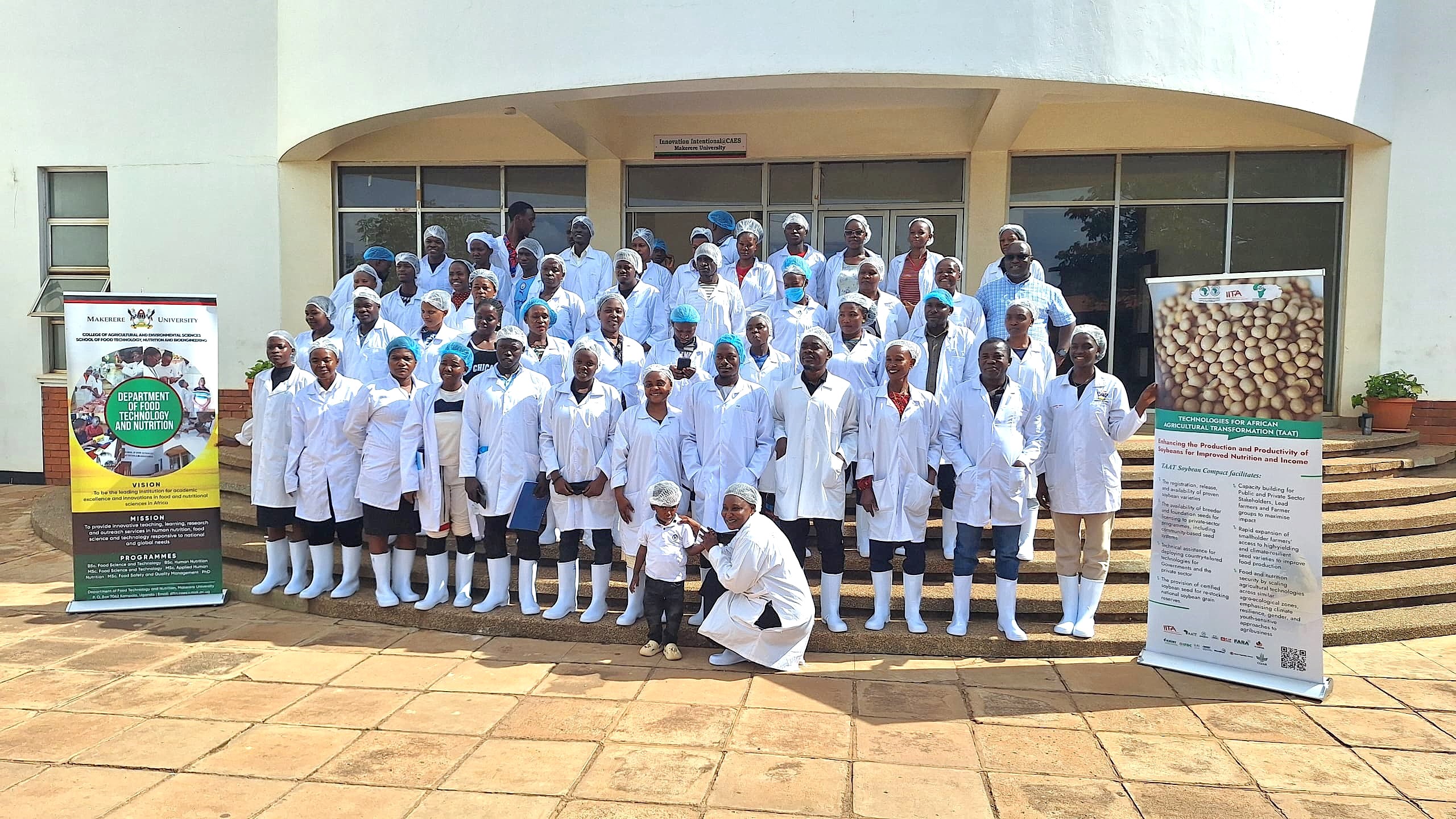
The Department of Food Technology and Nutrition (DFTN), Makerere University, in collaboration with Smart Foods Uganda Ltd, successfully conducted a five-day intensive training on soybean value addition and product development from 24th to 28th November 2025. The training was implemented with support from IITA Uganda under the Training for African Agricultural Transformation (TAAT) Soy Compact Project, aimed at strengthening agro-processing capacities and promoting soybean utilization for improved nutrition and livelihoods.
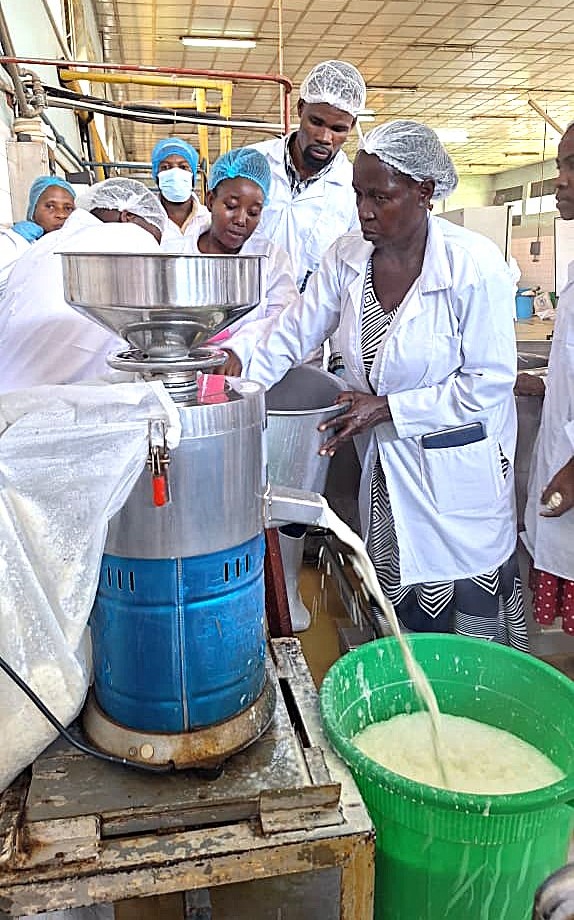
The training program was highly practical and skills-oriented, featuring extensive hands-on sessions designed to equip participants with applicable processing and product development competencies. Most of the practical activities were hosted at Makerere University’s Food Technology and Business Incubation Centre (FTBIC). Participants also benefited from an industry exposure and experiential learning session at Smart Foods Uganda Ltd in Bweyogerere, where they gained first-hand insights into commercial-scale soybean processing operations, quality control systems, and product marketing strategies.

Key thematic areas and technologies covered during the training included soybean nutrition and associated health benefits; assessment of quality attributes of soybeans and soy-based products; application of Good Hygiene Practices (GHP) and Good Manufacturing Practices (GMP); and processing of high-quality soy products. Practical sessions focused on the production of soymilk, tofu, soy yoghurt, soy flour, and soy coffee, as well as the formulation of soy-fortified composite porridge flours. Participants were also trained in the development of various soy-based bakery products, including bread, mandazi, daddies, and baghia. In addition, sessions on marketing, branding and positioning of soy products, as well as UNBS certification requirements and documentation, were conducted to enhance market readiness and regulatory compliance.
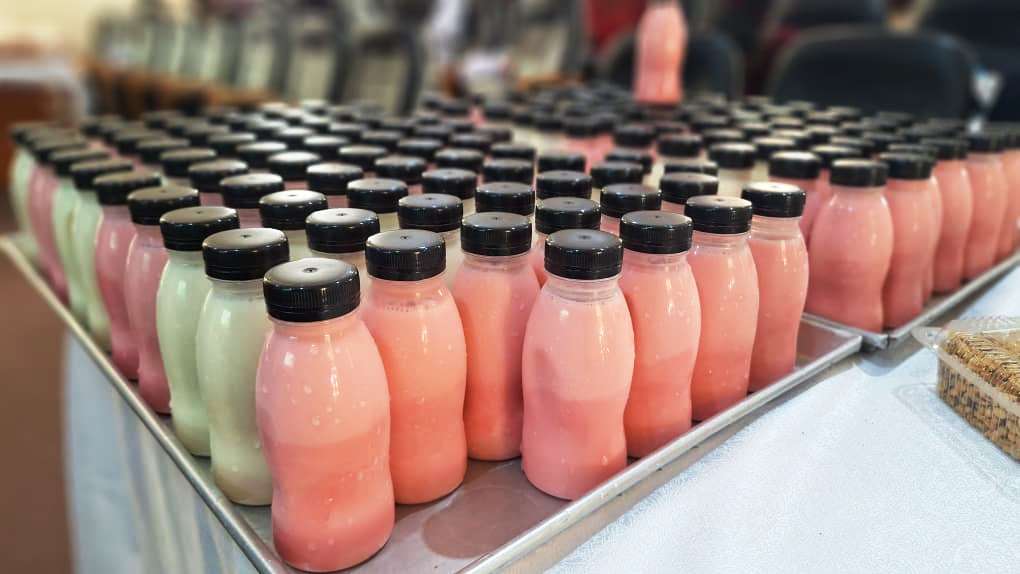
The training attracted a total of 57 participants, comprising small-scale soybean processors and graduating university students, thereby fostering knowledge exchange between academia and industry. Overall, the training contributed significantly to building technical capacity in soybean value addition, promoting entrepreneurship, and supporting the development of nutritious, market-oriented soy-based products in Uganda. The School of Food Technology, Nutrition, and Bioengineering, under the leadership of Dr. Julia Kigozi (Dean), conducts periodical trainings for agro-processors across the country to enhance technical capacity, improve product quality, and promote the adoption of modern, safe, and sustainable food processing practices. These trainings are designed to equip agro-processors with practical skills in food safety, quality assurance, value addition, post-harvest handling, nutrition, and bioengineering innovations, thereby enabling them to meet national and international standards. Through this outreach, the School contributes to strengthening agro-industrial development, reducing post-harvest losses, supporting entrepreneurship, and improving food and nutrition security while fostering stronger linkages between academia, industry, and communities.
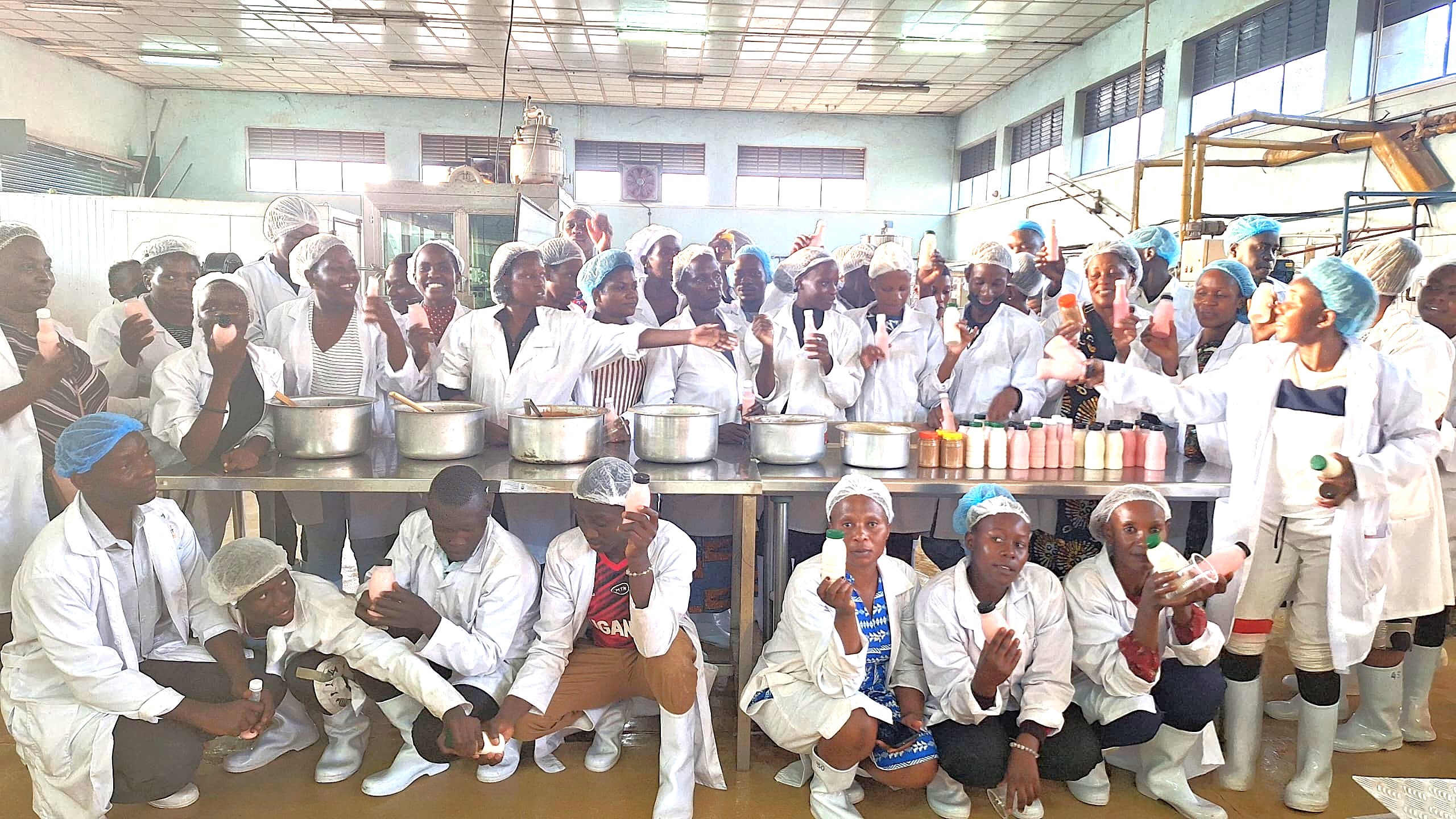
Trending
-

 Agriculture & Environment2 weeks ago
Agriculture & Environment2 weeks agoFrom Adversity to Excellence: The Inspiring Journey of Makerere’s Best Science Student, Esther Ziribaggwa
-

 General1 week ago
General1 week agoAptitude Exam (Paper 1) Results for the Mature Age Entry Scheme 2026/2027
-

 Health2 weeks ago
Health2 weeks agoDr. Samalie Namukose and the Quiet Work of Making Nutrition Count
-

 Research2 weeks ago
Research2 weeks agoCall for PhD Student Fellowships under H-DATA
-

 Health1 week ago
Health1 week agoHow Jimmy Osuret Turned Childhood Trauma into Evidence for Safer School Crossings
